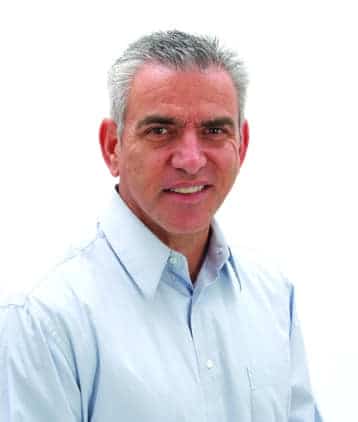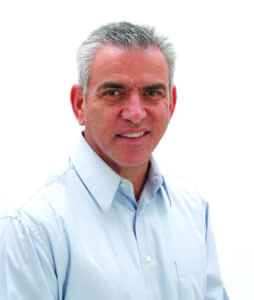Blog Page | August 2016 Hearing Review
The following is adapted from Alan Desmond’s June 14 and June 28, 2016 post on his Dizziness Depot column at HearingHealthMatters.org.
Over the years, I have periodically addressed the issue of fraud in vestibular testing. Addressing it only periodically doesn’t mean it isn’t happening every day, and the impact on patient care is going to be with us for a long time.
In a 2011 blog post and in the March 2013 Hearing Review, I discussed some clear indications of potential fraudulent billing. According to the Medicare database, there had been a 1400% increase in the utilization of the code for rotational chair testing. The primary providers of these services were primary care/internal medicine specialists who did not even have the proper equipment to perform this test. Subsequently, Medicare made a coding change that reduced the reimbursement by 75% for those practitioners legitimately performing rotational chair testing.
About 4 years ago, I was contacted by a fraud investigator for a large insurance provider that followed Medicare guidelines. She had seen my previous post and had some questions about a pain clinic billing for rotational chair testing. I knew the specific pain clinic and knew they did not have a rotational chair. When I told the investigator this was a widespread issue, she asked if I would be willing to speak to a group of fraud investigators at an upcoming meeting. I agreed, and dates were arranged.
As we discussed my presentation further, I explained how I felt fraud investigators were part of the problem. The problem, from my perspective, is that insurance companies think they can stop fraud by changing coding language, or changing a coding rule. When they see a spike in utilization or a manipulation of a loophole in the coding language, they make an adjustment to decrease utilization or close the loophole. Here’s the problem with that: Who is going to strictly adhere to changes in coding language that negatively affects their bottom line? My guess is that it will be the people that were already following the rules, trying to function in an ethical and legal manner. Who is going to ignore or manipulate the new rule? Most likely, the same people who were abusing the old rule.
My message to the investigators was that, to deter fraud, you have to go out and find the abusers, convict them, drop them as providers, or do whatever it takes to penalize them for the fraudulent activity. When you keep restricting legitimate practitioners and lowering reimbursement below sustainable levels, you create an environment where only the abusers can survive. I made the point that their approach discouraged good care, and would eventually limit access to qualified providers. A week later, I got a call dis-inviting me to speak at the upcoming meeting.
It appears that some investigators have done the legwork to put together winning cases regarding vestibular fraud. I commend them, and I hope it has some effect on those currently committing fraud. In the past, I have posted about Profit Centers for Primary Care regarding using VNG testing solely for cash production. I start with an excerpt from a webpage managed by Dr Evan Levine, a cardiologist in New York City. He relates a familiar scene involving a recent conversation:
“… Carmine told me he had “some type of test at my doctor where I looked at blinking lights.” To me it sounded like a study called Videonystagmography; better known as a VNG exam. This test is supposed to be used to look for reasons why a patient has recurrent dizziness but seems to be ordered by some physicians as a means of improving their bottom line.
“Did you complain of feeling dizzy, Carmine?” I asked. “No, but the doctor said, ‘Don’t worry about it; your insurance will pay for it.’” Recently I had a chance to walk into that doctor’s office and noticed he had a room full of “Don’t worry about it; your insurance will pay for it” testing devices. What is the ultimate insult to me is that this doctor is flourishing under the current healthcare system, while qualified and honest physicians are paying for their colleague’s dishonesty.
This type of practice has been going on for years, and I suspect still represents a large portion of Medicare money spent on vestibular testing. But some fraudsters have been taken down recently. The Houston Chronicle published a story recently about a Dr Augustine Egbunike who, along with his associates, was found guilty in a $3-million scheme based mostly around vestibular testing. Egbunke got 57 months in prison and must pay back $2 million. A review of the indictment of Dr Egbunike’s associates revealed some bold tactics. This is just a fraction of the charges. Over less than 3 months, they billed 416 vestibular tests on the same patient. On a different patient, they billed 614 tests over 51 different dates. The tests were not even being interpreted by anyone at the clinic. They were being sent off-site to Florida for interpretation by a physician who never even met the patient.
In another case, Terri Schneider, an audiologist in Florida, was sentenced to 94 months in prison and ordered to repay $2.5 million on charges largely related to vestibular fraud. Schneider and her co-conspirators sent in false claims totaling over $12 million.
The convictions may or may not deter future fraud associated with vestibular testing. There are still manufacturers and distributors giving incorrect billing information in hopes (I assume) of selling more equipment.
There does not appear to be any plan in place to protect patients and legitimate practitioners from the consequences of fraudulent schemes. Patients still have a hard time getting in to see a qualified vestibular practitioner, and those practitioners are struggling to keep their vestibular labs solvent.
Alan Desmond, AuD, is the author of two textbooks, several book chapters, and two educational booklets for primary care physicians, all related to dizziness and vertigo. He is a co-author of the Clinical Practice Guideline for Benign Paroxysmal Positional Vertigo, and represents the American Academy of Audiology at the American Medical Association. He is the director of the new Balance Disorders Program at Wake Forest University Baptist Medical Center in Winston-Salem, NC.
Chime in at Alan Desmond’s Dizziness Depot blog.
Original citation for this article: Desmond A. Vestibular Fraud and Its Consequences. Hearing Review. 2016;23(8):10.






